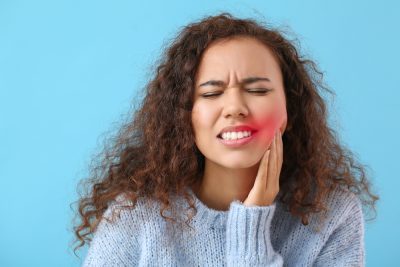Chapped lips are more than just a nuisance. While it’s easy to attribute dry, cracked lips to cold weather or dehydration, persistent chapping can actually be a sign of underlying health issues. Understanding the possible causes behind chapped lips is crucial because your lips can act as an early warning system for various health conditions. This article will explore what your chapped lips might be trying to tell you about your overall health.
The significance of chapped lips
Chapped lips, medically known as cheilitis, are a common problem that many people experience at some point in their lives. However, when chapped lips become chronic or severe, it may be time to pay closer attention. Your lips have a thin layer of skin that lacks oil glands, making them more susceptible to dryness and cracking. But when lip balm and increased hydration don’t seem to help, your body might be signaling something more significant.
Dehydration
One of the most common reasons for chapped lips is dehydration. When your body doesn’t have enough water, it prioritizes vital organs, leaving your skin and lips to dry out. Dehydration can result from not drinking enough fluids, excessive sweating or illnesses that cause vomiting or diarrhea. If you notice that your lips are consistently dry, it might be a sign that you need to increase your water intake.
How dehydration affects your lips and overall health
Chronic dehydration can lead to a myriad of health problems, including kidney stones, urinary tract infections and even complications with blood pressure. The skin, including your lips, is the first organ to show signs of dehydration, making it an important indicator of your body’s hydration levels.
Allergic reactions
Another potential cause of chapped lips is an allergic reaction. Lip products like lipstick, lip balm or even toothpaste can contain allergens that irritate the sensitive skin on your lips. Ingredients such as fragrances, flavorings and certain preservatives can trigger an allergic response, leading to inflammation, dryness and chapping.
Identifying and avoiding allergens
If you suspect an allergic reaction is behind your chapped lips, it’s essential to identify and avoid the offending product. Opt for hypoallergenic products and always read the ingredient labels carefully. In some cases, a dermatologist might recommend patch testing to determine the exact cause of your lip irritation.
Vitamin deficiencies
Your lips can also reflect the nutritional status of your body. Vitamin deficiencies, particularly in B vitamins (like B2, B6, and B12) and iron, can lead to dry, cracked lips. These nutrients are essential for maintaining healthy skin, and a lack of them can result in symptoms like chapped lips, mouth sores and a swollen tongue.
The role of nutrition in preventing chapped lips
To prevent chapped lips caused by vitamin deficiencies, it’s crucial to maintain a balanced diet rich in fruits, vegetables, whole grains and lean proteins. Foods like eggs, nuts, leafy greens and meat are excellent sources of these vital nutrients. If your diet is lacking, consider speaking with a health care provider about taking supplements.
Autoimmune diseases
Persistent chapped lips can sometimes be a symptom of an autoimmune disease. Conditions like lupus, Sjögren’s syndrome and Crohn’s disease can cause chronic dry lips. These diseases affect the immune system, leading it to attack the body’s tissues, including the salivary glands, which can reduce saliva production and result in dry mouth and lips.
Recognizing autoimmune symptoms beyond chapped lips
If your chapped lips are accompanied by other symptoms such as joint pain, fatigue, dry eyes or digestive issues, it’s important to consult a health care professional. Early diagnosis and treatment of autoimmune diseases can help manage symptoms and improve quality of life.
Environmental factors
While health issues are a significant cause of chapped lips, environmental factors shouldn’t be overlooked. Cold, windy weather, sun exposure, and indoor heating can all contribute to drying out your lips. Additionally, habits like licking your lips, smoking or breathing through your mouth can exacerbate the problem.
Protecting your lips from environmental damage
To protect your lips from environmental damage, apply a lip balm with SPF before going outdoors, especially in extreme weather conditions. At home, use a humidifier to add moisture to the air and avoid habits that can further irritate your lips.
The connection between chapped lips and oral health
Chapped lips can also be linked to oral health issues. Infections such as oral thrush or angular cheilitis, a condition that causes inflammation at the corners of the mouth, can lead to painful, cracked lips. Poor oral hygiene, ill-fitting dentures or braces can also contribute to these conditions.
Maintaining oral health to prevent chapped lips
Good oral hygiene is essential for preventing infections that can cause chapped lips. Brush and floss regularly, and visit your dentist for routine check-ups. If you wear dentures or braces, ensure they fit properly and don’t cause unnecessary irritation to your lips.
When to see a doctor about chapped lips
While occasional chapped lips can usually be treated with over-the-counter remedies, chronic or severe cases might require medical attention. If you’ve tried home remedies and your lips remain dry, cracked or painful, it’s time to consult a health care provider. They can help determine if your chapped lips are a sign of a more serious underlying condition and recommend appropriate treatment.
What to expect during a medical evaluation
During your visit, the doctor will likely ask about your medical history, lifestyle habits and any other symptoms you may have. They might perform tests to check for vitamin deficiencies, autoimmune diseases or infections. Depending on the diagnosis, treatment could range from dietary changes and supplements to medication and specialized skin care products.
Listening to your lips
Remember, your body often gives subtle hints before a major issue arises, and your lips are one of the first places to show signs of trouble. Don’t ignore what they’re trying to tell you — taking action now can save you from more severe health problems down the road.
This story was created using AI technology.















